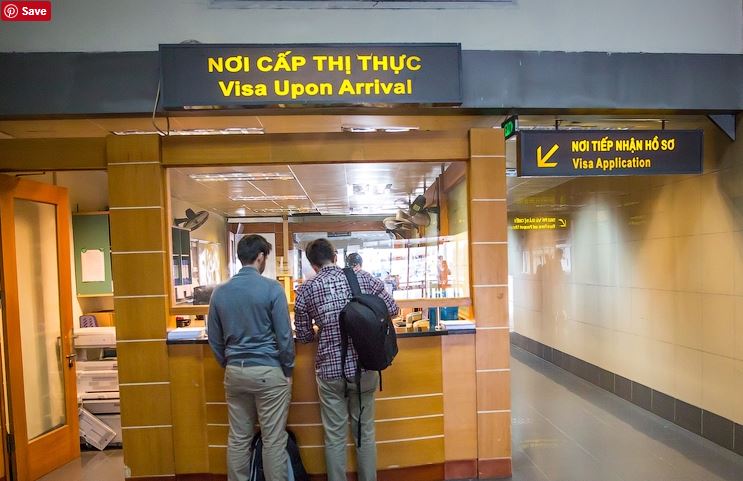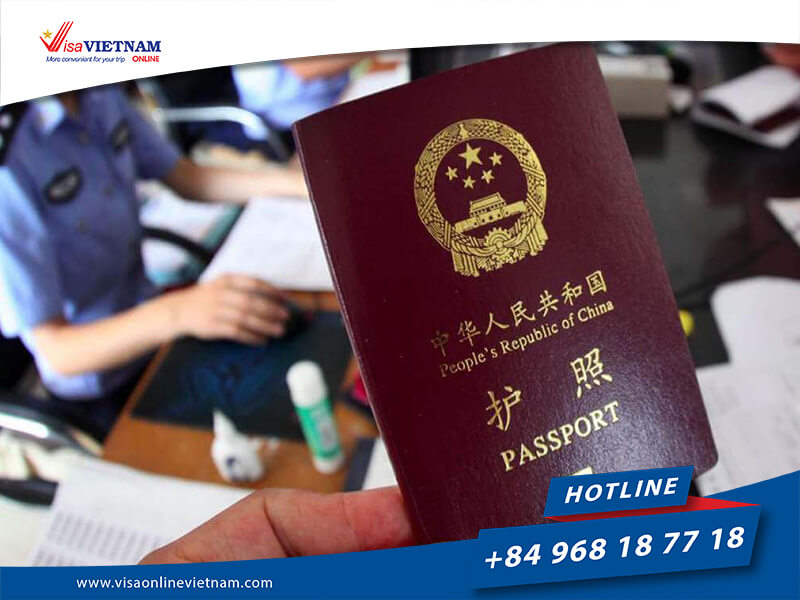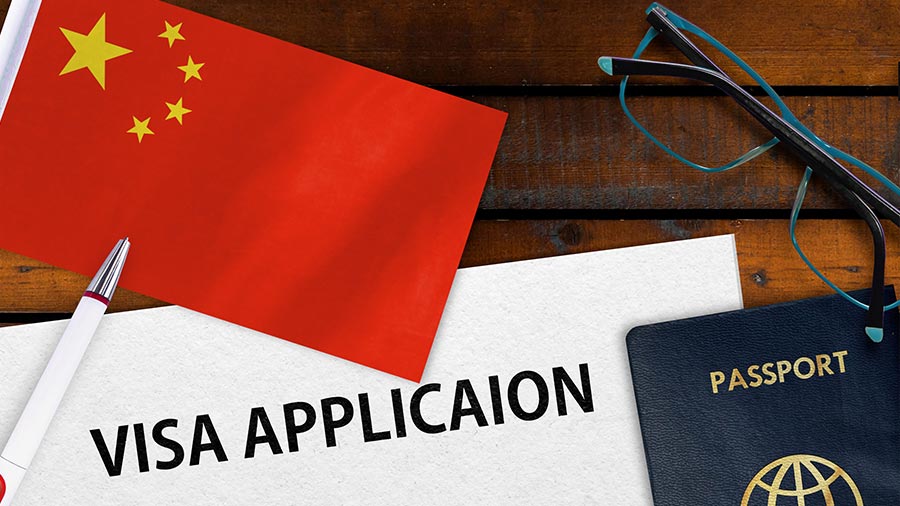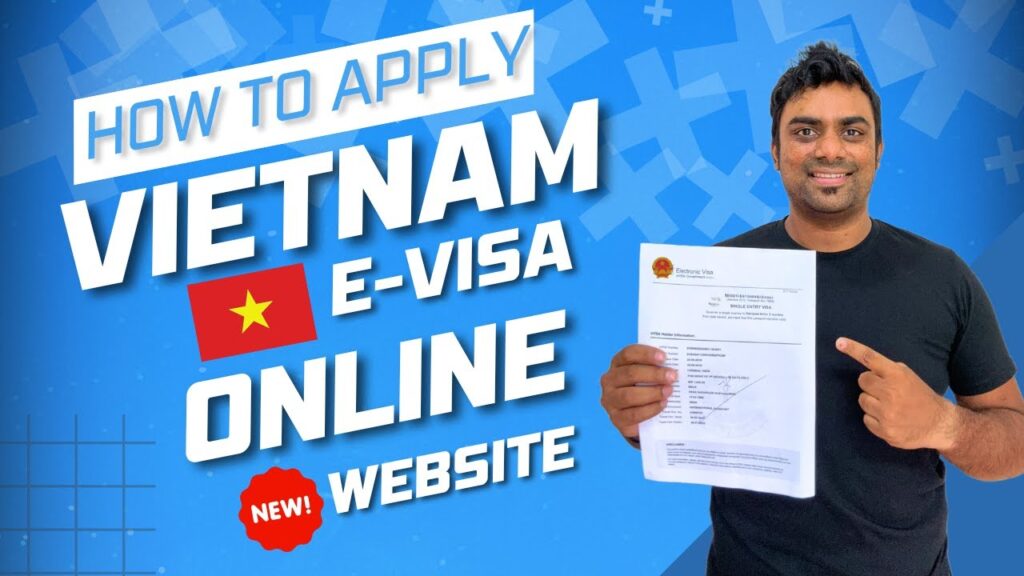When it comes to traveling, obtaining the right visa can be one of the most crucial steps. For Chinese citizens planning a trip to Vietnam from Singapore, understanding the Vietnam visa for Chinese in Singapore is essential. This article aims to provide comprehensive insights into the visa requirements, application processes, and other critical details that will facilitate a smooth travel experience.
Introduction to Vietnam Visa Requirements for Chinese Travelers
Vietnam has emerged as a popular travel destination for many, including Chinese nationals residing in Singapore. With its rich history, diverse culture, and stunning landscapes, it is no wonder that travelers are eager to explore this vibrant country.
However, before embarking on any journey, it is important to delve into Vietnam visa requirements for Chinese travelers. Generally speaking, all foreign visitors, including Chinese citizens, are required to secure a visa to enter Vietnam. The regulations surrounding visas can be somewhat complex, depending on various factors such as the purpose of the visit, duration of stay, and the individual’s citizenship status.
This article will explore different types of Vietnam visas available to Chinese nationals, the process for applying from Singapore, and some tips for navigating potential challenges during the trip.
Types of Vietnam Visas Available to Chinese Nationals

As a Chinese national, there are several visa options available when planning a trip to Vietnam from Singapore. These visa types cater to different purposes of travel, ensuring that every traveler can find an option that suits their needs.
Tourist Visa Options
The tourist visa is perhaps the most common choice for those visiting Vietnam for leisure.
One of the fundamental reasons why tourists opt for a visa is to immerse themselves in the cultural richness that Vietnam offers, from exploring the ancient streets of Hanoi to relaxing on the beautiful beaches of Da Nang.
Typically, a tourist visa allows for short-term stays, often ranging from 30 days to three months.
Chinese nationals can apply for either a single-entry or multiple-entry visa, depending on their travel plans. A single-entry visa permits entry into Vietnam only once, while a multiple-entry visa allows for several entries within the validity period.
Business Visa Options
For Chinese citizens traveling to Vietnam for business purposes, obtaining a business visa is necessary.
Business visas are tailored for individuals attending meetings, conferences, or conducting business activities.
These visas also come in varying durations, with options for single-entry and multiple-entry as well.
It’s worth noting that the application process for a business visa may require additional documentation, such as an invitation letter from a Vietnamese company or organization.
E-Visa Process for Chinese Citizens
In recent years, Vietnam has introduced an e-visa option that provides a more streamlined process for obtaining travel authorization.
The e-visa is particularly appealing to Chinese nationals, as it allows for a hassle-free online application without needing to visit an embassy or consulate.
With an e-visa, travelers can enjoy a stay of up to 30 days with a single-entry permit.
The application process involves filling out an online form, uploading required documents, and making the applicable fee payment. Once approved, the e-visa is sent via email, which travelers can print and present upon arrival in Vietnam.
How to Apply for a Vietnam Visa from Singapore

Understanding how to apply for a Vietnam visa is essential for Chinese citizens living in Singapore. There are various ways to go about this process, each with its own advantages and considerations.
Vietnam Visa for Chinese in Singapore Online Application Process
Applying for a Vietnam visa online is perhaps the most convenient method for Chinese nationals in Singapore.
By leveraging the internet, travelers can initiate their visa application from the comfort of their homes.
Many websites facilitate this process, allowing applicants to fill out the necessary forms electronically.
Upon submitting the application and paying the visa fee, individuals typically receive feedback relatively quickly, often within a few days.
Vietnam Visa for Chinese – Applying Through the Vietnamese Embassy
Another option for obtaining a Vietnam visa is to apply in person at the Vietnamese Embassy in Singapore.
This traditional route may appeal to those who prefer face-to-face interactions or have specific questions regarding their visa applications.
To initiate the process, applicants must gather the required documents, including their passport, completed visa application form, and photographs.
Once submitted, processing times may vary, so it’s advisable to plan ahead to avoid any last-minute inconveniences.
Required Documents for Visa Application
Regardless of the application method chosen, certain documents are universally required for a successful Vietnam visa application.
Firstly, a valid passport with at least six months’ validity from the date of entry into Vietnam is essential.
Additionally, applicants will need to provide recent passport-sized photographs that meet specific criteria set by the Vietnamese authorities.
Furthermore, any supporting documentation relevant to the visa type selected must also be included, such as a hotel reservation, flight itinerary, or invitation letter for business travelers.
Duration and Validity of Vietnam Visas for Chinese

The duration and validity of Vietnam visas can significantly impact the travel experience for Chinese nationals.
Understanding these parameters is crucial for effective travel planning.
Short-term vs Long-term Visas
Vietnam offers both short-term and long-term visa options.
Short-term visas typically allow for stays of up to 30 days, suitable for tourists and short business trips.
On the other hand, long-term visas may extend beyond 30 days and cater to expatriates or individuals requiring extended stays for work or study.
Extension of Stay in Vietnam
In instances where travelers wish to remain in Vietnam longer than their visa permits, they should be aware of the extension process.
Visa extensions can be applied for at local immigration offices in Vietnam, although the criteria and procedures may differ based on the visa type.
It is advisable to initiate this process well before the visa expiration date to avoid overstaying, which could result in fines or complications for future travel.
Common Challenges Faced by Chinese Travelers

While Vietnam is generally welcoming to visitors, Chinese travelers may encounter specific challenges during their trips.
Being mindful of these potential hurdles can help ensure a smoother experience.
Language Barriers
Language can pose a significant challenge for Chinese travelers in Vietnam.
Although English is spoken in major tourist areas, many locals may not be proficient in it, which can lead to misunderstandings or communication difficulties.
Learning a few basic Vietnamese phrases or having a translation app handy can make interactions significantly easier.
Understanding Local Regulations
Familiarizing oneself with local laws and customs is vital for any traveler but particularly important for Chinese nationals in Vietnam.
Local regulations can differ markedly from those in China, and being unaware of certain rules may lead to unintentional violations.
Researching essential guidelines around behavior, photography restrictions, and dress codes, especially in sacred sites, will enhance the overall travel experience.
Navigating Visa Issues
Visa-related issues can arise unexpectedly, whether due to paperwork errors or misunderstanding of entry requirements.
Chinese travelers should keep copies of all visa-related documents and remain informed about the latest visa policies.
If any complications do arise, seeking assistance from local authorities or the nearest Chinese embassy can provide guidance and support.
Tips for a Smooth Travel Experience in Vietnam
To make the most of the trip, Chinese travelers should consider various tips that can improve their overall travel experience in Vietnam.
Cultural Etiquette and Customs
Understanding the cultural etiquette in Vietnam is essential for fostering good relationships with locals.
Showing respect for Vietnamese customs, such as greeting people politely, using both hands when presenting or receiving items, and dressing modestly in religious places, can leave a positive impression.
Additionally, being open-minded and respectful of cultural differences will enrich interactions and create memorable experiences.
What to Know About Transportation
Navigating transportation in Vietnam can be an adventure in itself.
From traditional cyclo rides to modern ride-sharing apps, there are various means available to explore cities and rural areas alike.
However, it’s crucial to research the safety and reliability of transportation options before committing.
Using reputable services or asking hotel staff for recommendations can enhance safety and convenience during travels.
Safety and Health Precautions
Maintaining safety and health precautions throughout the journey is paramount for any traveler.
Ensuring proper vaccinations and carrying a first-aid kit can protect against health issues that might arise during the trip.
Moreover, staying vigilant about personal belongings and avoiding poorly lit areas at night can contribute to a safer travel environment.
Conclusion: Navigating the Vietnam Visa Process for Chinese Nationals in Singapore
Traveling from Singapore to Vietnam as a Chinese citizen can be both an exciting and enriching experience.
By understanding the visa requirements, application processes, and practical considerations outlined throughout this article, travelers can navigate their journey with confidence.
Securing the right visa, being prepared for language barriers, and respecting local customs will pave the way for an unforgettable adventure in Vietnam—a land full of history, beauty, and warmth.
In conclusion, whether you are visiting for tourism, business, or exploration, being adequately informed and prepared is the key to a successful trip.



